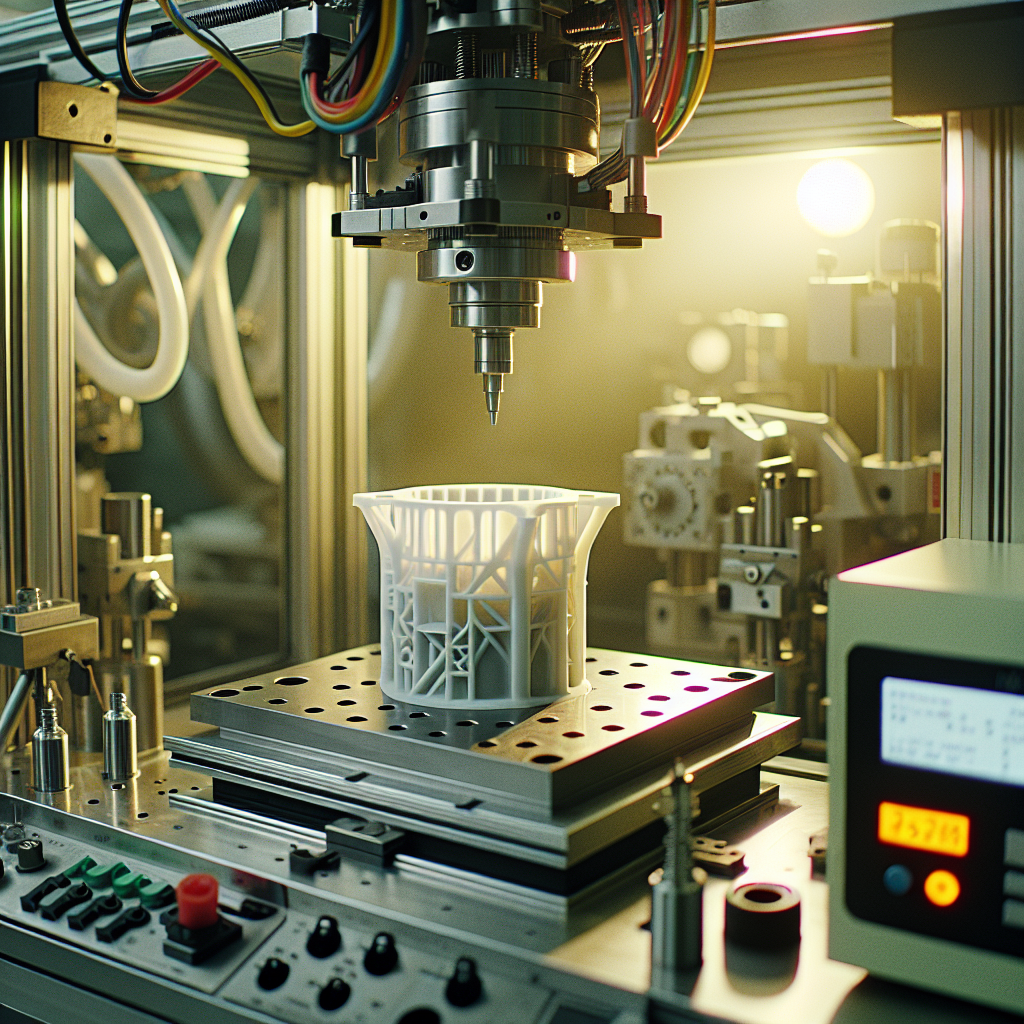The plastics manufacturing industry is a vital component of the U.S. economy, ranking as the eighth-largest industry in the country. This sector supports the production of countless affordable consumer goods and advanced products for industrial applications, making it an essential contributor to the nation's economic growth and job creation.
In this article, we will explore the economic impact of the plastics industry, its advantages, the challenges it faces, and how innovative solutions like Deskera's ERP and MRP software can help manufacturers navigate these challenges and thrive in an increasingly competitive market.
Economic Impact and Job Creation
The plastics industry has a significant impact on the U.S. economy, directly and indirectly driving opportunities across various sectors. In total, the industry supports the employment of over 1.55 million people in the United States. States with the largest economies, such as Texas, California, and Ohio, have the highest concentrations of plastics industry workers, as most plastic products are inputs for manufactured goods.
The plastics industry's economic impact extends far beyond direct employment. It generates substantial economic activity through supplier purchases, employee spending, and tax revenue. In 2020, the plastics industry accounted for $432.3 billion in shipments and $53.6 billion in value added to the U.S. economy. The industry also supports a wide range of downstream industries, such as automotive, healthcare, packaging, and construction, which rely on plastic products for their operations.
Plastics as a Key Material
Plastics are a long-term, sustainable investment for companies due to their durability, versatility, and affordability compared to alternative materials. Industries across the economy can pass along cost savings to consumers by offering quality goods at a lower price, which is particularly important during times of record-high inflation.
Plastics play a crucial role in various sectors, such as healthcare, where they are used in medical devices, personal protective equipment, and packaging for pharmaceuticals. In the automotive industry, plastics help reduce vehicle weight, improve fuel efficiency, and enhance safety features. Plastics also contribute to the development of renewable energy technologies, such as wind turbines and solar panels, by providing lightweight, durable, and corrosion-resistant components.
Environmental Advantages
Life Cycle Assessments (LCAs) have consistently found that plastic products have significant environmental advantages over alternative materials, including emissions reductions. Plastics are less resource-intensive to produce and transport than other materials and inherently conserve resources from manufacture to transportation to end-of-life. For example, plastic bottles expend 40 percent less energy in transportation than glass bottles.
Plastics also play a crucial role in reducing food waste by providing effective packaging solutions that extend the shelf life of perishable goods. According to a study by the American Chemistry Council, plastic packaging helps reduce food waste by 1.7 pounds for every pound of plastic packaging used. This not only conserves resources but also reduces greenhouse gas emissions associated with food waste decomposition in landfills.
Challenges Facing the Industry
Despite its economic importance and environmental advantages, the plastics manufacturing industry faces several challenges that must be addressed to ensure its long-term sustainability and growth.
- Environmental concerns: Mismanaged plastic waste can become an environmental pollutant, with one to two million tonnes of plastic entering our oceans yearly, affecting wildlife and ecosystems. Improving the management of plastic waste across the world is critical to tackling this problem. The industry must work towards developing more sustainable production processes, promoting recycling, and reducing the environmental impact of plastic waste.
- Recycling infrastructure: Only a small fraction of plastic waste is economically or technically viable to recycle, with the vast majority entering the environment or being incinerated. The industry needs to invest in the necessary recycling infrastructure to process end-products and create a fully circular economy. This includes developing advanced recycling technologies, improving waste collection and sorting systems, and creating markets for recycled plastics.
- Regulations: The plastics industry is subject to various regulations, such as the Clean Air Act, Clean Water Act, and Toxic Substances Control Act, which establish emissions limits, discharge standards, and regulate the use of chemicals in plastics production. Compliance with these regulations can be costly, particularly for small and medium-sized businesses. The industry must work with policymakers to develop regulations that balance environmental protection with economic growth and competitiveness.
- Public perception: The public is increasingly concerned about the environmental impact of plastics, leading to calls for reduced single-use plastics and improved recycling. The industry must address these concerns and work towards more sustainable solutions, such as developing biodegradable and compostable plastics, promoting recycling education, and collaborating with stakeholders to develop effective waste management strategies.
Innovations and the Future
To address these challenges, the plastics industry is investing in innovative solutions that can drive sustainable growth and reduce environmental impact. One key area of innovation is advanced recycling technologies, which can convert post-use plastics into high-quality raw materials for new products. These technologies, such as chemical recycling and pyrolysis, can reduce CO2 emissions by up to 50 percent compared to traditional recycling methods. They also have the potential to expand the scope of recyclable plastics, preserve the value of resources in the economy, and meet the growing demand for high-quality, recycled plastics.
Another area of innovation is the development of bioplastics, which are made from renewable resources such as corn starch, sugarcane, and vegetable oils. Bioplastics can help reduce the industry's reliance on fossil fuels and decrease greenhouse gas emissions associated with plastic production. However, the widespread adoption of bioplastics faces challenges, such as limited production capacity, higher costs compared to traditional plastics, and the need for specialized recycling infrastructure.
The plastics industry is also exploring circular economy models, which aim to keep plastics in use for as long as possible through reuse, repair, and recycling. By adopting circular economy principles, the industry can reduce waste, conserve resources, and create new business opportunities. This requires collaboration across the value chain, from product design and manufacturing to waste management and recycling.
3D Printing and Its Relevance to the Plastics Industry
3D printing, also known as additive manufacturing, is an innovative technology that is transforming the plastics industry. This technology allows for the creation of complex, customized parts and products using a variety of plastic materials. 3D printing offers several advantages over traditional manufacturing methods, such as reduced waste, faster prototyping, and greater design flexibility.
In the plastics industry, 3D printing is being used for a wide range of applications, from creating prototypes and tooling to producing end-use parts. For example, 3D printing can be used to create custom-fit medical devices, such as prosthetics and implants, using biocompatible plastics. In the automotive industry, 3D printing is being used to produce lightweight, complex parts that can improve fuel efficiency and reduce emissions.
3D printing also has the potential to support the plastics industry's sustainability efforts. By enabling on-demand production and reducing the need for inventory, 3D printing can help minimize waste and reduce the environmental impact of transportation. Additionally, some 3D printing technologies can use recycled plastics as feedstock, creating new opportunities for the circular economy.
As the plastics industry continues to face challenges related to sustainability and environmental impact, 3D printing is likely to play an increasingly important role in driving innovation and supporting the transition to a more circular economy.
How Deskera Can Help Plastics Manufacturers
As the plastics industry navigates these challenges and opportunities, innovative solutions like Deskera's cloud-based ERP and MRP software can help manufacturers streamline their operations, increase efficiency, and improve profitability.
- Integrated Platform: Deskera enables fast-growing businesses to operate more efficiently by providing an integrated platform that connects accounting, inventory and warehouse management, order fulfillment, procurement, sales and marketing, and human resource operations. With real-time insights into core operations, businesses can make better decisions and grow faster.
- Industry-Specific Features: Deskera ERP is tailored for the plastics and rubber industry, offering features such as extrusion-specific bill of materials, centralized die specifications and plastic recipes, optimized workflows, and real-time PLC machine monitoring. These features help manufacturers reduce errors, improve quality, and drive superior customer service.
- Scalability and Flexibility: As a cloud-based solution, Deskera ERP is highly scalable and can grow with your business. It offers flexibility for businesses of all sizes, from small businesses to large enterprises. This is particularly important for plastics manufacturers, who may need to adapt quickly to changing market conditions and customer demands.
- Improved Efficiency and Cost Savings: By automating processes, reducing manual intervention, and providing real-time data insights, Deskera ERP helps plastics manufacturers improve efficiency, reduce costs, and enhance profitability. For example, Deskera's inventory management features can help manufacturers optimize stock levels, reduce waste, and improve order fulfillment. Its production planning and scheduling capabilities can help manufacturers maximize resource utilization, minimize downtime, and improve on-time delivery.
- Compliance and Sustainability: Deskera ERP can help plastics manufacturers meet regulatory requirements and sustainability goals by providing tools for tracking and reporting on environmental metrics, such as energy consumption, waste generation, and emissions. It can also help manufacturers manage compliance with industry standards and certifications, such as ISO 9001 and ISO 14001.
Conclusion
The plastics manufacturing industry is a crucial component of the U.S. economy, supporting job creation, generating revenue, and driving sustainability efforts. As the industry navigates challenges such as environmental concerns, recycling infrastructure, regulations, and public perception, it must invest in innovative solutions that can drive sustainable growth and reduce environmental impact.
Deskera's cloud-based ERP and MRP solutions can help plastics manufacturers adapt to these challenges, optimize their operations, and thrive in an increasingly competitive market. By providing an integrated platform, industry-specific features, scalability, and improved efficiency, Deskera can help manufacturers streamline their processes, reduce costs, and improve profitability.
As the plastics industry continues to evolve and innovate, it will play a vital role in shaping the nation's economic landscape and driving sustainable development. By embracing new technologies, collaborating with stakeholders, and investing in sustainable solutions, the industry can create a more resilient, circular, and environmentally responsible future for plastics manufacturing in the United States.
For more information on how Deskera can help transform your manufacturing operations, I invite you to connect with me on LinkedIn and send me a message. Let's discuss how our powerful software and dedicated support can help you improve efficiency, reduce costs, and deliver the high-quality products your customers demand. Together, we can navigate the challenges of the industry and build a stronger, more resilient future for your business.








